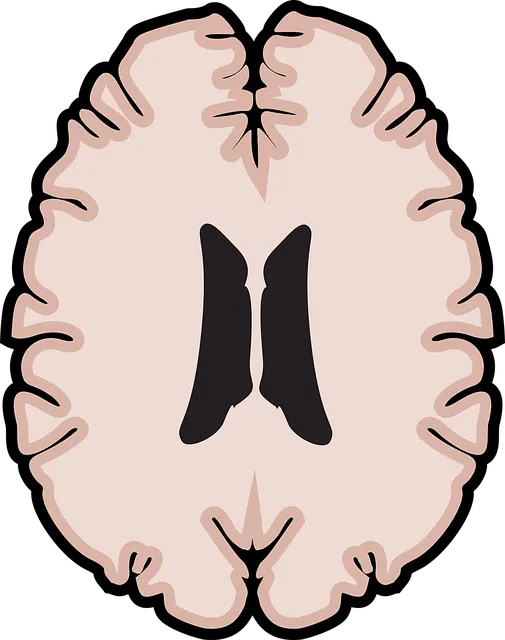The Kaiser Permanente Mental Health Access Center in Lafayette leads the way in accessible, holistic mental wellness coaching. They offer tailored programs integrating evidence-based practices like journaling and compassion cultivation, empowering individuals with coping strategies for stress, anxiety, and burnout. Their innovative approach combines coaching with therapy, improving patient outcomes and fostering a supportive community. Rigorous training and data-driven assessment ensure high-quality care, making it a model for mental wellness initiatives across healthcare systems focusing on Kaiser Permanente mental health access center Lafayette.
Mental wellness coaching programs have emerged as a crucial component in addressing the growing demand for accessible, personalized support. This article explores the development and impact of such programs, drawing insights from innovative models like the Kaiser Permanente Mental Health Access Center in Lafayette. We’ll delve into designing effective curricula, integration strategies with traditional services, and evaluation methods to measure success. By understanding best practices from leading centers, we can enhance mental wellness coaching as a game-changer in healthcare.
- Understanding the Need for Mental Wellness Coaching Programs
- The Kaiser Permanente Mental Health Access Center in Lafayette: A Model for Care
- Designing Effective Coaching Curricula and Training
- Integration Strategies: Combining Coaching with Traditional Mental Health Services
- Measuring Success: Evaluation and Impact Assessment of Mental Wellness Coaching Programs
Understanding the Need for Mental Wellness Coaching Programs

In today’s fast-paced world, mental wellness has become a crucial aspect of overall health and well-being. Stress, anxiety, and burnout are prevalent issues affecting individuals across various demographics, including those in the workplace. This is where Mental Wellness Coaching Programs step in as transformative tools. These programs aim to support individuals in navigating their mental health journeys, offering much-needed guidance and support.
The need for such initiatives is evident, especially when considering the increasing demand for accessible mental health services. Organizations like Kaiser Permanente’s Mental Health Access Center in Lafayette recognize this challenge and are at the forefront of promoting holistic well-being. Through tailored coaching, these programs empower individuals with coping strategies, fostering resilience against life’s stressors. Incorporating practices such as Mental Wellness Journaling Exercise Guidance and Compassion Cultivation can profoundly enhance one’s ability to manage emotions and build strong mental health foundations.
The Kaiser Permanente Mental Health Access Center in Lafayette: A Model for Care

The Kaiser Permanente Mental Health Access Center in Lafayette serves as a shining example of how comprehensive and accessible mental wellness coaching can be implemented within a healthcare system. This center has been at the forefront of integrating self-care practices and Mind Over Matter principles into routine patient care, demonstrating a holistic approach to addressing mental health concerns. By doing so, it not only enhances individual well-being but also fosters a community that prioritizes mental resilience and overall wellness.
One of its notable strengths is the risk assessment protocol followed by its mental health professionals. This structured evaluation process allows for early identification of at-risk individuals, enabling timely interventions. Such an approach ensures that patients receive the necessary support before issues escalate. The Lafayette center’s model has shown promising outcomes, inspiring other healthcare organizations to adopt similar strategies, ultimately contributing to a more sustainable and effective mental wellness coaching program development across various settings.
Designing Effective Coaching Curricula and Training

When developing Mental Wellness Coaching Programs, designing effective curricula and training is paramount. The Kaiser Permanente Mental Health Access Center in Lafayette emphasizes a holistic approach, integrating evidence-based practices with personalized coaching techniques. This ensures that coaches are equipped to address a wide range of mental health concerns, from stress management to confidence boosting. A well-rounded curriculum should include modules on active listening, goal setting, and coping strategies, allowing coaches to guide clients towards sustainable wellness.
Training should focus not only on technical skills but also on emotional intelligence and empathy. Mental Health Education Programs Design that prioritize these aspects enable coaches to build strong therapeutic alliances, fostering an environment where individuals feel safe and supported. By combining rigorous training with ongoing professional development, organizations like the Kaiser Permanente Mental Health Access Center in Lafayette ensure their coaches deliver high-quality care, ultimately enhancing the effectiveness of mental wellness coaching programs.
Integration Strategies: Combining Coaching with Traditional Mental Health Services

Integrating coaching with traditional mental health services is a strategic approach that offers comprehensive support for individuals seeking improved mental wellness. At the Kaiser Permanente Mental Health Access Center in Lafayette, this fusion of methods has proven effective in enhancing patient outcomes. By combining one-on-one coaching sessions with evidence-based therapeutic practices, the center provides a holistic treatment plan tailored to each client’s unique needs.
This integration benefits individuals struggling with various mental health concerns, including stress management and emotional regulation. Through coaching, patients gain valuable tools for anxiety relief and develop personalized strategies to navigate their mental health journeys effectively. This collaborative approach ensures that clients receive not only professional therapeutic support but also practical guidance to foster long-term emotional well-being.
Measuring Success: Evaluation and Impact Assessment of Mental Wellness Coaching Programs

Measuring success is a critical aspect of evaluating the effectiveness of mental wellness coaching programs, such as those offered by the Kaiser Permanente Mental Health Access Center in Lafayette. Comprehensive evaluation and impact assessment are essential to understanding the program’s reach, benefits, and areas for improvement. This process involves collecting data on various metrics related to participant well-being, including symptoms of anxiety and depression, stress reduction methods employed, and improvements in social skills training.
Regular assessments allow coaches to track individual progress and identify specific trauma support services needed. By comparing pre- and post-program data, the Kaiser Permanente center can quantify the impact on mental health outcomes. This data-driven approach enables them to tailor coaching strategies, ensure program quality, and demonstrate the value of their initiatives, potentially attracting more clients seeking accessible mental health care solutions.
Mental wellness coaching programs, as exemplified by the successful model at the Kaiser Permanente mental health access center in Lafayette, hold immense potential in enhancing access to care and improving overall well-being. By integrating these programs with traditional services, we can create a holistic approach to mental healthcare that is both effective and engaging. Measuring success through evaluation and impact assessment is crucial to refining these programs and ensuring they meet the diverse needs of individuals seeking support. With continued innovation and collaboration, mental wellness coaching can revolutionize access to care, fostering healthier communities across the globe.






